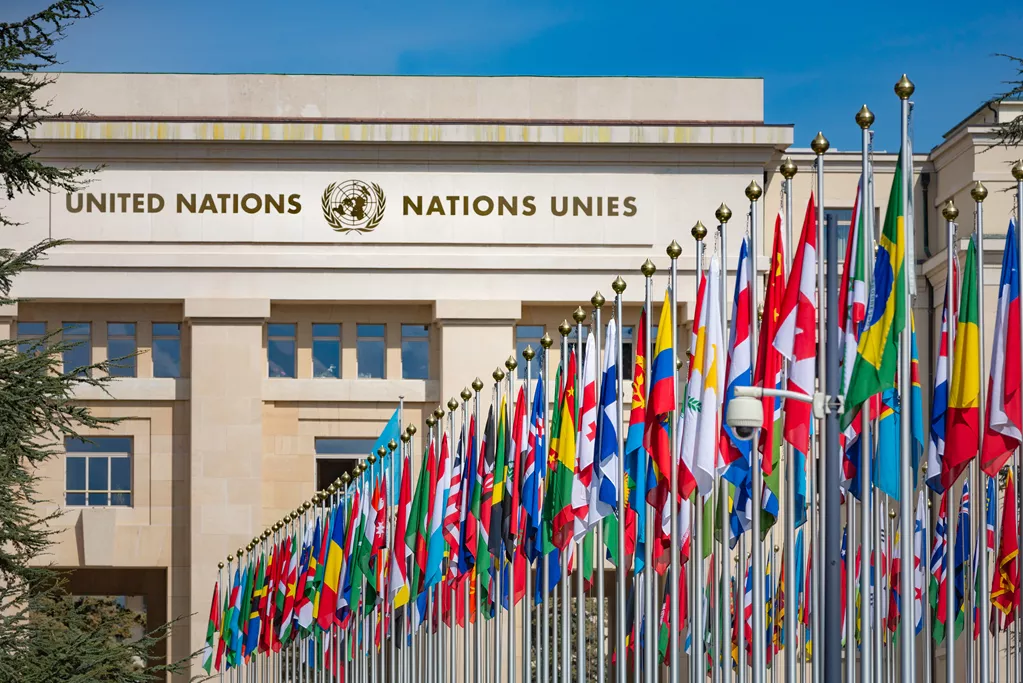At the beginning of this year, the UN published the initial draft of the so-called Pact for the Future, and the final version of the document will be adopted by the member states at the Summit of the Future to be held in September. The document has an annex, the Global Digital Compact, which includes the principles of approaching a series of such issues as sustainable development, international peace and security, or digital cooperation. The journalistic community and media developers consider that none of these challenges should be considered without freedom of expression, freedom of the press, and access to accurate information, and several relevant organizations emphasize that the UN has failed to integrate these principles into the Pact for the Future.
WHAT IS THE GLOBAL DIGITAL COMPACT?
Two years ago, United Nations Secretary-General António Guterres launched the Global Digital Compact aimed at addressing the key digital issues faced by humanity. This initiative revealed critical areas of concern ranging from the digital gap and inclusion in the digital economy to data governance, application of human rights to the online environment, regulating artificial intelligence, and strategies for promoting trust and security, including implementation of liability criteria for misleading content.
The Global Digital Compact is an essential component of the Summit of the Future scheduled by the UN for September 2024 which will end with the negotiations regarding the Pact for the Future.
The adoption process includes consultations with a number of stakeholders, including civil society and the private sector. Although this compact is governmental, it is not binding; however, it is an important step towards coping with digital challenges on a global scale. The document is focused on establishing common standards to counter harmful content on digital platforms. Another task highlighted as essential is facilitating cooperation among national online safety institutions.
MEDIA COMMUNITY RESERVES
In an article published by DW Akademie on the eve of the UN Civil Society Conference on May 9 and 10, the authors affirm that the document lacks references to the crucial importance of the right to freedom of expression and related rights. More exactly, according to them, the document recognizes that “none of these challenges can be addressed without freedom of expression, media freedom and access to accurate, consistent and reliable information.” However, the act does not specify any steps to guarantee this access.
Within the framework of the Global Digital Compact, the UN member states will agree on common principles of digital cooperation. The current draft expressly calls for “promoting diverse and resilient information ecosystems, including by strengthening public service media.” At stakeholder consultations held by the UN in April, Roslyn Kratochvil Moore, Head of DW Akademie’s digital sphere unit said: “The media community plays a key role in the digital space, particularly in the information integrity cluster. It should be expressly mentioned as a stakeholder in the GDC.”
Reporters Without Borders (RSF) also called for the protection of free, pluralistic, and independent journalism, as well as the right of all the citizens to have access to trustworthy news and information in the global digital information environment. “These notions do not appear anywhere in the current version of the document. (…) This ambitious initiative must not become a missed opportunity for regulating the global information space,” RSF emphasizes in a press release.
“The lack of regulation of the digital space allows disinformation and propaganda to flourish on the Internet, to the detriment of quality journalism and reliable information. The regulatory framework proposed by the Global Digital Compact is intended to respond to this challenge, which is why we support the UN secretary-general’s initiative. But without strong safeguards for the right to information and journalism, this document will not rise to the democratic challenge. We call on governments to act in favor of the right to information,” Antoine Bernard, RSF director of advocacy and assistance, declares.
RSF provided recommendations to the European Union delegation to the UN participating in the negotiations regarding the final version of the document, demanding to incorporate several principles which guarantee informational pluralism, supporting journalism, and sufficient legal requirements for digital service providers in the document.
